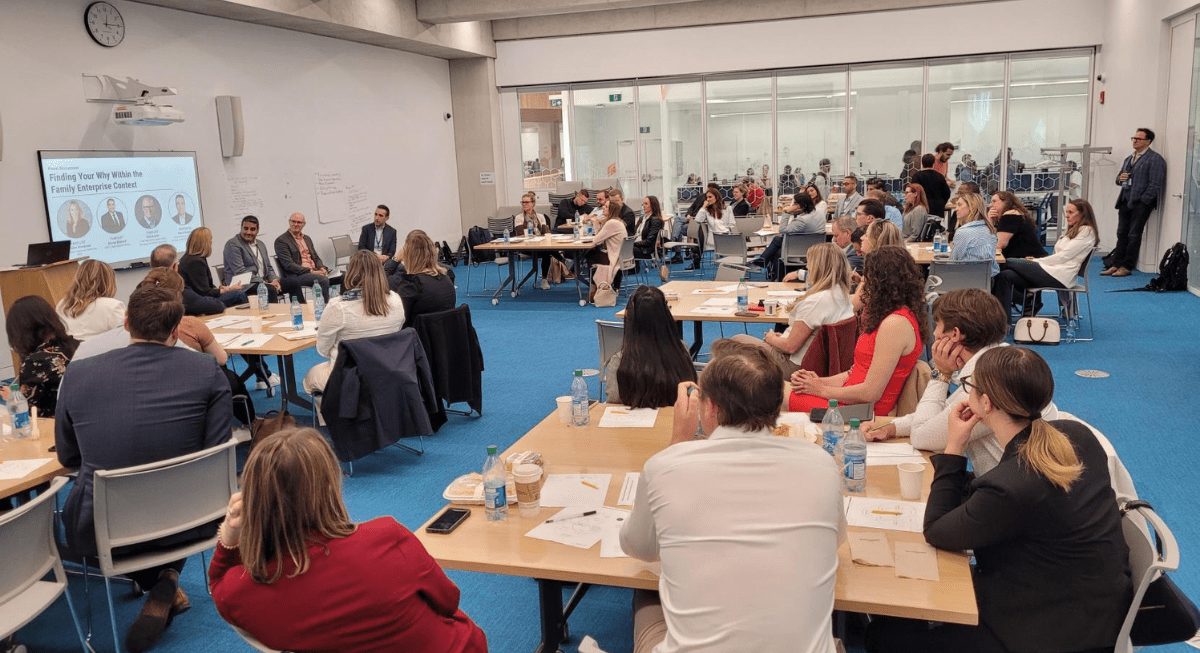They aren’t sure where they fit in and have questions that are often ignored. And if NextGens can’t find answers from those around them, they will naturally go outside the family.
This is the situation a lot of next generation family members find themselves in: although they’ve grown up with a thriving family business, they feel disconnected and unseen.
This situation doesn’t happen for lack of interest or caring from the parents’ generation. Instead, a shortage of time (business owners are busy) or an absence of the right skills and tools (to handle difficult, emotional conversations) leads to a failure to address NextGens’ needs.
These were the topics Family Enterprise Legacy Institute (FELI) Academic Director Peter Jaskiewicz discussed in an interview for FamilyBusiness.org with Kimberly Eddlestone, Schulze Distinguished Professor of Entrepreneurship at the D'Amore-McKim School of Business.
Here are some of Jaskiewicz’s key points, with ideas for what families can do to help the next generation thrive.
A delicate topic
Succession can be a very delicate topic that can lead to family friction. And to make things worse, conversations about succession are often delayed or ignored because of busy schedules, or out of fear from the senior generation that the next generation won’t be interested.
But while these conversations aren’t taking place, members of the next generation are busy building their own lives — and have a lot of options!
“It’s different from one generation ago, where a lot of people just had one option, and that was to come to the family business,” Jaskiewicz says. “Now, the next generation has options whether they want to work for Apple in San Francisco or move to Paris. It doesn’t have to be the family business.”
For the family business to be sustainable for another generation, Jaskiewicz says it’s necessary to start the succession conversations early.
Wealth and its challenges

Wealth can, of course, be a huge benefit, but it can also bring about deep challenges and a sense of entitlement. For some next generation members, there’s discomfort and questioning about whether they deserve the wealth they’re inheriting.
“We’ve seen many examples of next generation members in general squandering the wealth or making poor decisions,” says Jaskiewicz. “Many of them have this problem where they are growing up with tremendous wealth but it doesn’t mean they have a clear identity or know exactly who they are or what they want to do.”
Similar to starting succession discussions when NextGens are young, Jaskiewicz recommends starting a dialogue as early as possible about wealth. There can be a lot of stigma around talking about money, and it can also be an emotional topic where conversation can quickly go in the wrong direction, so bringing in outside help to facilitate is useful.
Watch the full interview with Peter Jaskiewicz.
Building opportunities to grow
The next generation needs opportunities to grow, and this often comes from getting out into the world and making mistakes. This can mean spending time working outside the family business, and the family then creating the right conditions for them to come back when they’re ready. “They will make mistakes, like everyone does,” says Jaskiewicz. “I often joke, let them get the experience early, and let them make the mistakes working for others, with other people’s money.”
Building bridges across generations is also key to making sure the next generation feels seen and heard. This can mean exposing NextGens to family philanthropic activities, involving them in starting a family office or finding educational programs that teach them to be responsible owners and stewards across multiple generations.
Whether you’re a parent wanting to involve your NextGen member in the family enterprise, or a NextGen member who isn’t sure what direction to go, the resounding message is to start conversations early — in the boardroom and the dining room — and to not shy away from difficult conversations.
Learn more about the Family Enterprise Institute and how it’s bridging the gap between generations.











